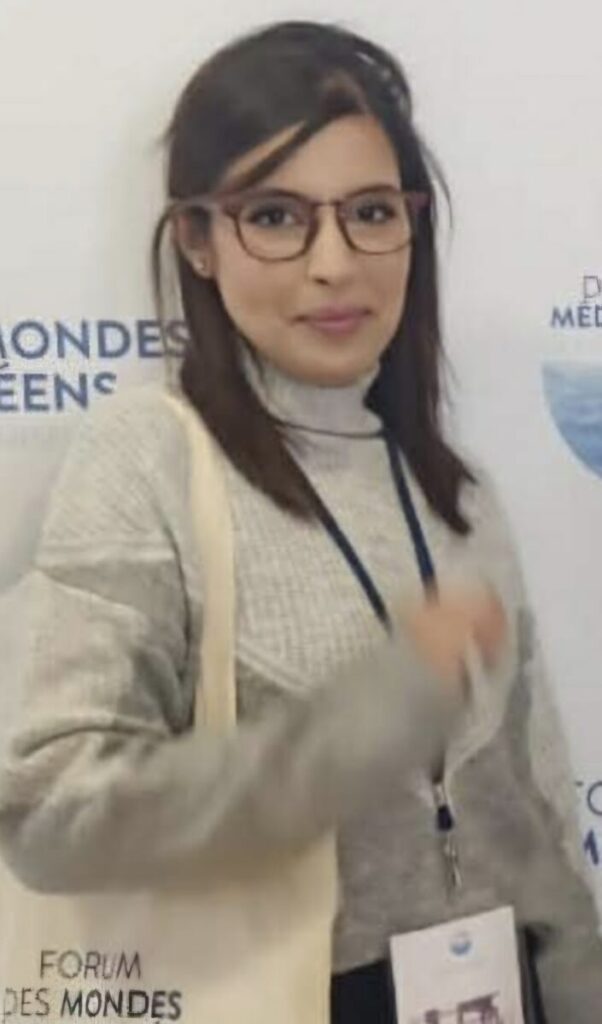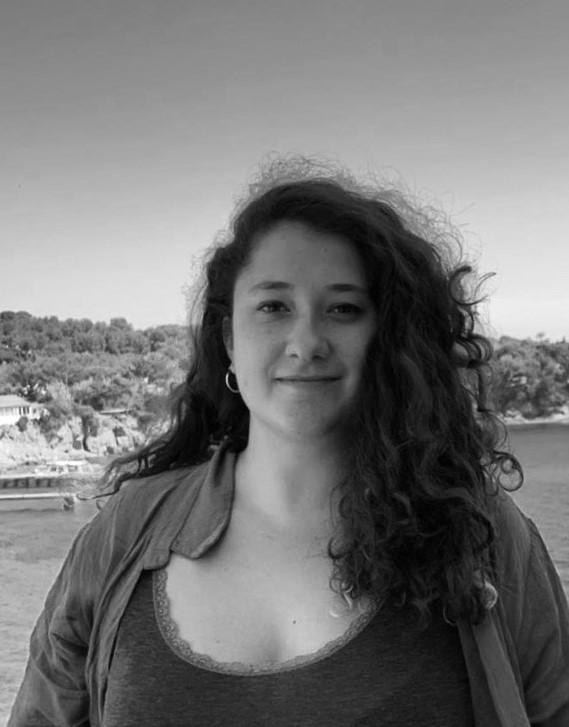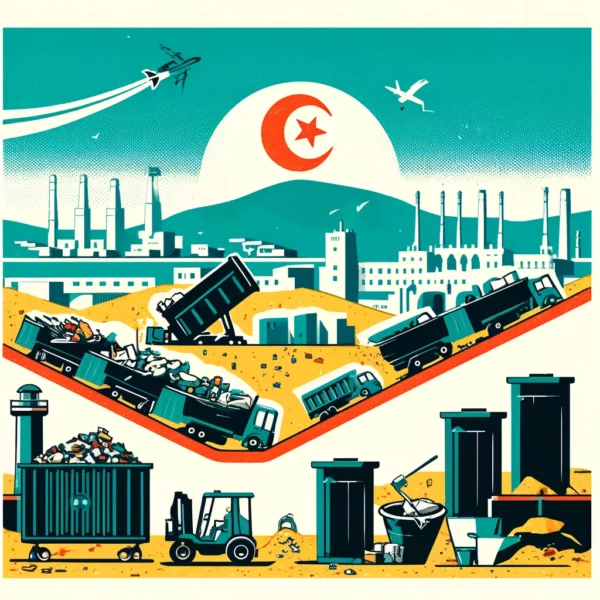Waste management is a major issue for all countries, especially in the Mediterranean basin. Justine Viros decrypts with Melissa Kanane, a doctor in Ecosystem Protection, waste management in Algeria, particularly in Kabylie (1). Next week, she will provide a more general overview of the different types of waste in the Mediterranean, especially based on sociological criteria (2). And in the third week, she will discuss their impact on the environment (3).
Melissa Kanane entrusts us with the result of her work on the waste management scheme in Algeria, the associated problems and solutions, and finally, their valorization.
Sequence 1 - Waste management in Algeria
Algeria, with a population of over 44 million inhabitants and increasing consumption, is seeing a constant rise in waste production. This growth poses significant environmental and health challenges, requiring effective and sustainable strategies.
Waste management has undergone significant evolution over the decades.
At the beginning of the 20th century, the majority of waste was organic waste, uniform waste management was not in place, and it was common for the population to resort to a form of composting at the bottom of their gardens. After gaining independence in 1962, Algeria had to face rapid urbanization, an increase in consumption, and the arrival of plastic packaging in large quantities, leading to an increased production of different types of waste. According to the report by the National Waste Agency (AND) published in 2016, the quantity of waste from households amounts to 11 million tons, and each individual generates between 0.7 and 0.9 kg of waste per day. The management of this waste quickly became a major issue that involves regulations and initiatives.
Several waste management techniques are used
Currently, the national waste management scheme relies solely on mixed collection (different types of mixed waste) and transport to the Technical Landfill Sites (TLS) [2]. TLS are facilities designed for the safe disposal of waste. They must comply with strict standards, such as having an impermeable clay soil to prevent the infiltration of toxic leachate, and systems to capture gas emissions, such as methane and CO2. However, these standards are often not met, leading to infiltrations and ecological disasters [3].
Three other techniques are also used locally, but are outside the national management scheme :
- Composting
- Recycling
- The incineration
This last technique allows for reducing the volume of waste, but it is a source of greenhouse gas emissions and toxic residues.
Local initiatives often compensate for the inadequacy of public policies
In Algeria, waste management is often ineffective despite significant budgets. Some localities allocate over 50% of their annual budget to waste management, but the results do not meet expectations. Infrastructure is often inadequate, and coordination among the various responsible entities is weak.
Beyond management by the state and local authorities, local initiatives play a crucial role. Village and neighborhood committees often take independent measures.
For example, in Kabylie, pilot neighborhoods practice sorting and composting organic waste. These initiatives are supported by collaborations with local authorities and civil society organizations. Composting is a method of valorizing organic waste that significantly reduces its volume while producing a useful amendment for agriculture. At the University of Tizi Ouzou, research teams and associations are developing pilot projects showing that over 60% of waste is organic and can be valorized. In Tizi Ouzou, for instance, I chair a composting and recycling association created to train students in this field and provide them with job opportunities.
Several approaches can be suggested to improve waste management
To improve waste management efficiency and reduce costs, several approaches can be considered :
The implementation of a generalized sorting system: currently, the collection of mixed waste does not allow for the recovery of recyclable waste (recyclable plastic, paper/cardboard, metal packaging, glass)
Adopting the polluter-pays principle: encouraging industries and individuals to reduce their waste and adopt more sustainable practices
Adopting the polluter-pays principle: encouraging industries and individuals to reduce their waste and adopt more sustainable practices.
Strengthening infrastructure: investing in infrastructure for sorting, composting, and recycling
Coordination among the stakeholders: coordinating the actions of local authorities, public companies, and associations.
Awareness and education: conducting awareness campaigns to encourage waste sorting at the source and its reduction.
Composting: a preferred valorization method
In Algeria, a common method of valorization is composting. It is economical, ecological, and suitable for countries on the south shore of the Mediterranean, as a large majority of the waste is organic.
Recycling is another important method of valorization. In Kabylie, many specialized companies, equipped with appropriate technologies and skills, recycle different types of plastics. Village and neighborhood committees sell their recyclable waste to them, generating additional income. These partnerships help stimulate the local economy, while also benefiting the environment.
Economically, it helps to reduce waste management costs and create jobs in the sector. In addition, composting improves soil quality and promotes biodiversity. Indeed, the valorization of these organic waste preserves soils and biodiversity and limits pollution by reducing greenhouse gas emissions and toxic leachates.
In conclusion, waste management in Algeria presents significant challenges, but also important opportunities. By adopting effective valorization methods, strengthening infrastructure, and encouraging the participation of local communities and businesses, Algeria can improve its waste management and contribute to a more sustainable future.
Biography

Melissa Kanane: Doctor in Ecosystem Protection specialized in waste management and part-time lecturer at the University of Tizi-Ouzou in Algeria. Her work focuses on quantifying, identifying, characterizing, and valorizing household and similar waste.

Justine Viros: Scientist specializing in the Mediterranean forest and the forest-atmosphere chemical interactions in the context of climate change. She currently holds a Research Engineer position within the Interdisciplinarity(s) mission of Aix-Marseille University where she is in charge of development mission for the Neede Méditerranée association.
References:
